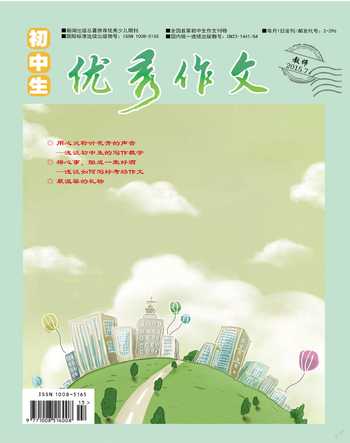四英译本《论语》中“恭、宽、信、敏、惠”的炼词及句法特点
刘颖
摘 要:《论语》是中国古代思想文化瑰宝,英译版本众多。本文节选了阳货第十七(六)中孔子关于“仁”的精辟论述,参考了四种不同版本的译文,分析其词语选择及句型构建,比较得出最体现“信达雅”的译本,并使读者更加深刻地认识孔子“恭、宽、信、敏、惠”等思想精华。
关键词:孔子;《论语》;词;句;分析
孔子(公元前551年—公元前479年)是我国春秋末期的著名思想家、哲学家、文学家、教育家。“仁”是孔子的思想精华之一。本文分析了四英译版“仁”的论述,探究其选词语及句型特点。
阳货第十七的(六)中孔子对“仁”的精辟论述如下:
子张问于孔子。孔子曰:“能行五者于天下,为仁矣。”“请问之。”曰:“恭,宽,信,敏,惠。恭则不侮,宽则得众,信则人任焉,敏则有功,惠则足以使人。”
1、D.C.刘(D.C.Lau)的译文
《论语》是由企鹅出版社出版。这一版本非常珍贵,在大学作为资料供英语专业高年级学生学习。本书被收录在企鹅出版社经典系列中,D.C.刘译注,全英文介绍及注释,在美国发行。
在阳货第十七的(六)中有孔子关于“仁”的精辟论述:
子張问于孔子。孔子曰:“能行五者于天下,为仁矣。”“请问之。”曰:“恭,宽,信,敏,惠。恭则不侮,宽则得众,信则人任焉,敏则有功,惠则足以使人。”
D.C.刘的译文如下:
Tzu-chang asked Confucius about benevolence. Confucius said,“There are five things and whoever is capable of putting them into practice in the Empire is certainly ‘benevolent.”
“May I ask what they are?”
“They are respectfulness,tolerance,trustworthiness in word,quickness and generosity. If a man is respectful he will not be treated with insolence. If he is tolerant he will win the multitude. If he is trustworthy in word his fellow men will entrust him with responsibility. If he is quick he will achieve results. If he is generous he will be good enough to be put in a position over his fellow men.”
D.C.刘是香港人,年轻时就读于香港大学中文系,后到英国深造哲学,有研究中国古代思想家著作的优势。在上面这段关于“仁”的解释中,benevolence是被广泛接受的,特指“仁爱心,善行”,这个词义比goodness更清晰明确。
文章中的respectfulness,tolerance和generosity都非常精准,体现了译者对原文意义的把握。值得注意的是译者把“能行五者于天下”意译为“在国家中能实际运用这五种德行的人……”,使译文很直观,免去了“天下”这个模糊概念。
但是文中的“信”却有明显的缩义:trustworthiness in word,因为“信”不仅体现在言谈中,还体现在行为方面,所以此处值得近一步推敲。
总的来说,D.C.刘在炼词方面很讲究,词义尊重原文,延伸恰当。他把原文一段体分译为三段,有问有答,很生动,通俗易懂。在语言上略显罗嗦。第三段用了五个条件状语从句,字数是原文的两倍。
2、赖波、夏玉和的译文
本版本译文出自中国圣人文化丛书中的《论语》分册。本书先由蔡希勤先生把原文译成白话文,再由赖波和夏玉和译成英语的。译文如下:
Zi Zhang asked Confucius how to be benevolent. Confucius said,“To embrace five qualities at once is benevolent.”Zi Zhang asked,“What are the five qualities?”Confucius said,“They are gravity,tolerance,trustworthiness,diligence,and generosity. With gravity you will not be humiliated;tolerance brings the support of the multitude;trustworthiness wins the trust of others;diligence paves the way to success;and generosity makes it easy to exercise control over others.”
在这篇译文中,有三点值得再斟酌。
第一,at once用得费解。“立刻”之意与原义不符。第二,gravity用得欠妥。gravity的释义有三,即:引力,地心重力;令人忧虑的重要性、严重性;严肃、庄严。而原文中的“恭”是恭敬、尊敬的意思,和“庄严”在意义上相差较远。第三,全译文的后五个分句在句子的结构上不一致。如:“With gravity you will not be humiliated”主语是人,而后四句全改成了tolerance,trustworthiness,diligence,generosity等词,所以对仗不严密,读起来不顺。
3、亚瑟·韦利(Arthur Waley)的译文
现在市面上最常见的英译本《论语》是由外语教学与研究出版社出版的,这一版本原引英国赫特福德出版社读物,由英国人亚瑟·韦利翻译,有难点注释。译文如下:
Tzu-chang asked Master Kung about Goodness. Master Kung said,He who could put the Five into everywhere under Heaven would be Good. Tau-chang begged to hear what these were. The Master said,“courtesy,breadth,good faith,diligence and clemency. He who is courteous is not scorned,he who is broad wins the multitude,he who is of good faith is trusted by the people,he who is diligent succeeds in all he undertakes,he who is clement can get service from the people.”
直观地对照原文,显然Arthur Waley在中文理解方面有局限性。例如:“天下”译为under Heaven。本身under heaven有副词“究竟”的意思,并无“世上、国家”等的意思。Arthur Waley将“天下”进行直译略显牵强。把“惠”翻为clemency也值得推敲。因为clemency的意思是“仁慈”,这和“大方、恩惠”之意相差很远。
“仁”被译为Goodness,而且大写,另外,“五者”也大写为the Five,看来Tzu-chang是把“仁”上升为一种思想体系,固定下来的。在全书的很多细节,译者都是这样直接运用,具有一定的思想连贯性。
译文结构紧凑,用了五个精悍的定语从句说明五种德行,字数也控制得很好。这篇译文是语言结构上的精品。
这样的语言特点在全本书中发挥得淋漓尽致。又如,Of the adage “Only a Good Man knows how to like people,knows how to dislike them,”the Master said,He whose heart is in the smallest degree set upon Goodness will dislike no one(子曰:“唯仁者能好人,能恶人。苟志于仁矣,无恶也。”)
4、李天辰的译文
李天辰教授是曲阜师大孔子文化学院的副院长,潜心于孔子、儒学的研究与译介,曾多次赴美、加、台等国家和地区的大学作有关孔子思想儒学文化的报告。《孔子名言新编》是由山东友谊出版社出版。是李天辰教授译编的力作。其译文如下:
Zi Zhang asked Confucius about benevolence. Confucius said,“He who could practice five things everywhere in the world would be benevolent.”“What are they?”Zi Zhang asked. Confucius said:“Courtesy,magnanimity,sincerity,diligence and kindness. He who is courteous will not be humiliated,he who is magnanimous wins the multitude,he who is sincere is trusted by others,he who is diligent succeeds in all he undertakes,he who is kind can get good service from others.”
这个版本的译文是很成功的。无论炼词还是句子结構,都可谓天衣无缝。精华部分运用的是简捷的定语从句,五个关于德行的词也选得恰当。另外,子长的问句也翻得简短,没有罗嗦夸大之嫌。
参考文献
[1]D.C.Lau.1979.The Analect[J]s.New York:Penguin Books USA Inc.
[2]Theodore de Bary[J].1989. A Guide to Oriental Classics. Columbia University Press
[3]蔡希勤,赖波,夏玉和[J].论语.北京:华语教学出版社,1994.
[4]李天辰.孔子名言新编[J].济南:山东友谊出版社,2003

